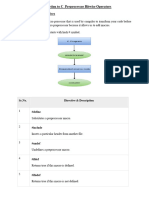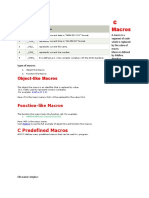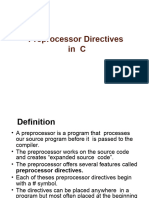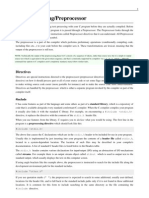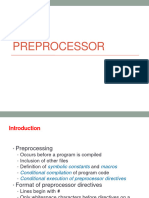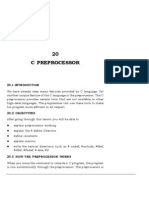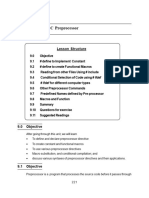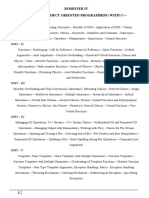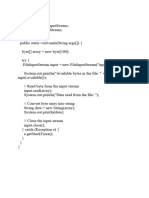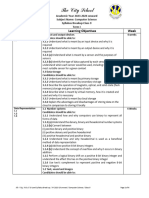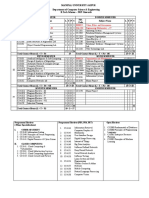0% found this document useful (0 votes)
11 views16 pagesPreprocessors C
The document explains C preprocessors, which are directives that begin with a '#' and instruct the compiler to include files or define macros before compilation. It categorizes preprocessor directives into four types: file inclusion, macro definitions, conditional compilation, and miscellaneous features, detailing their usage and syntax. Additionally, it provides examples of macros, conditional compilation, and directives like #error and #pragma, highlighting their roles in controlling compilation and error handling.
Uploaded by
harshatharithikaCopyright
© © All Rights Reserved
We take content rights seriously. If you suspect this is your content, claim it here.
Available Formats
Download as PDF, TXT or read online on Scribd
0% found this document useful (0 votes)
11 views16 pagesPreprocessors C
The document explains C preprocessors, which are directives that begin with a '#' and instruct the compiler to include files or define macros before compilation. It categorizes preprocessor directives into four types: file inclusion, macro definitions, conditional compilation, and miscellaneous features, detailing their usage and syntax. Additionally, it provides examples of macros, conditional compilation, and directives like #error and #pragma, highlighting their roles in controlling compilation and error handling.
Uploaded by
harshatharithikaCopyright
© © All Rights Reserved
We take content rights seriously. If you suspect this is your content, claim it here.
Available Formats
Download as PDF, TXT or read online on Scribd
/ 16






